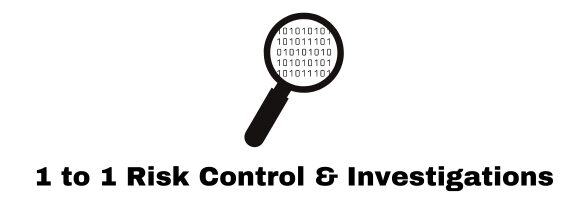405-458-5710
Confidentiality Guaranteed
405-458-5710
Confidentiality Guaranteed
You are Reading:
-
1 to 1 Risk Control & Investigations > Blog > Investigations > The Insights a Private Investigator Can Gain from Profiling Trash

Jul
The Insights a Private Investigator Can Gain from Profiling Trash
The Power of Profiling Trash: When it comes to private investigations, every piece of information can be valuable. One often overlooked source of information is a subject’s trash. Profiling trash, also known as “garbology,” can provide a wealth of insights about an individual’s lifestyle, habits, and potentially incriminating evidence. This method, though seemingly unglamorous, can be a goldmine for private investigators.
Daily Routines and Habits: Analyzing a subject’s trash can reveal their daily routines and habits. Items such as coffee cups, fast-food wrappers, and grocery receipts can indicate where and when the subject tends to eat and shop. These details can help build a profile of the subject’s daily activities and preferences, which can be crucial in surveillance operations.
Financial Situation: Financial documents, bank statements, and discarded bills found in the trash can offer a snapshot of the subject’s financial situation. This information can reveal income levels, spending habits, and any financial difficulties the subject might be facing. Such insights can be valuable in cases involving fraud, debt recovery, or financial disputes.
Personal Relationships: Correspondence, discarded photographs, and personal notes can provide clues about the subject’s personal relationships. Love letters, greeting cards, and invitations can indicate connections to other individuals, which might be relevant in cases of infidelity, custody battles, or missing person investigations. Additionally, finding items belonging to other individuals can suggest cohabitation or frequent visitors.
Substance Use and Health: The presence of prescription bottles, over-the-counter medications, and other health-related items in the trash can give clues about the subject’s health and potential substance use. Empty alcohol bottles, cigarette packs, and drug paraphernalia can indicate habits that might be pertinent to the investigation. Understanding the subject’s health and substance use can be crucial in cases involving custody disputes, workplace investigations, or personal injury claims.
Legal and Employment Issues: Legal documents, pay stubs, and employment records discarded in the trash can provide information about the subject’s legal and employment status. Notices from attorneys, court summons, or legal agreements can indicate ongoing legal issues. Pay stubs and employment records can reveal job stability, income, and possible workplace conflicts. This information can be instrumental in legal investigations, background checks, and employment disputes.
Hobbies and Interests: Items related to hobbies and interests, such as magazines, club membership cards, or sporting goods receipts, can provide insight into the subject’s leisure activities. Knowing the subject’s hobbies can help investigators predict their movements and anticipate their behavior. This information can be useful in surveillance operations or when trying to locate a missing person.
Digital Footprint: Discarded electronic devices, old SIM cards, or printed emails can offer a glimpse into the subject’s digital life. Analyzing these items can reveal communication patterns, social media activity, and online purchases. This digital footprint can be crucial in cyber investigations, identity theft cases, or when trying to establish a timeline of events.
Potentially Incriminating Evidence: Trash can sometimes contain potentially incriminating evidence that the subject might have carelessly discarded. Shredded documents, broken devices, and discarded packaging of illegal items can all point to illicit activities. Investigators can piece together shredded documents or analyze broken devices to uncover hidden information. This evidence can be pivotal in criminal investigations or legal disputes.
Environmental and Ethical Considerations: Profiling trash involves certain ethical and environmental considerations. Investigators must ensure that they are complying with local laws regarding the collection and analysis of trash. Additionally, respecting the subject’s privacy and maintaining professional integrity is crucial. Investigators should handle all information responsibly and ethically, ensuring that their methods are legally sound and morally justifiable.
Case Studies and Real-World Examples: There have been numerous instances where profiling trash has led to significant breakthroughs in investigations. For example, in one case, a private investigator uncovered evidence of infidelity by analyzing discarded receipts and personal notes found in the subject’s trash. In another instance, investigators were able to trace financial fraud by piecing together shredded bank statements. These real-world examples highlight the effectiveness and importance of garbology in private investigations.
Limitations and Challenges: While profiling trash can be incredibly informative, it does come with limitations and challenges. Not all information found in the trash is reliable or relevant. Investigators must be skilled in distinguishing useful information from irrelevant debris. Additionally, there is always the risk of misinterpreting the evidence, leading to incorrect conclusions. Therefore, trash analysis should be used in conjunction with other investigative methods to build a comprehensive profile.
Profiling trash is a powerful tool in the arsenal of a private investigator. It can provide a wealth of information about a subject’s lifestyle, habits, and potentially incriminating activities. By analyzing daily routines, financial situation, personal relationships, and more, investigators can build a detailed profile that aids in their investigations. However, ethical considerations and limitations must be acknowledged, and trash analysis should be combined with other investigative techniques to ensure accuracy and effectiveness.
- AI
- Bug Sweeps
- Car Security
- Cyber Crime
- Cyber-Stalking
- Digital Forensics
- Fraud
- Geo-Political
- GPS Tracking
- Hidden Cameras
- Identity Theft
- Investigations
- Misinformation
- Mobile Device Forensics
- Mobile Device Security
- Operational Security
- Privacy
- Psychology
- Situational Awareness
- Social Media Investigations
- Stalking
- Surveillance
- Uncategorized
